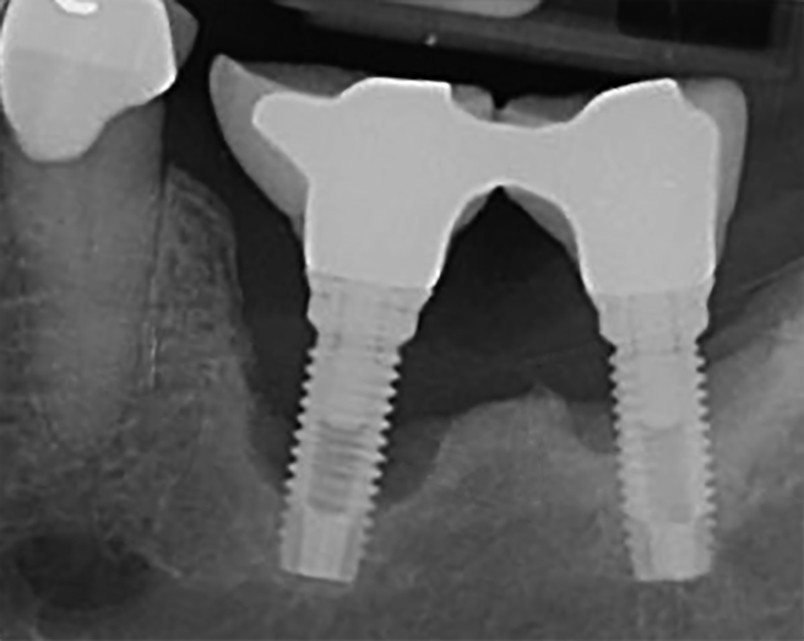Implant Maintenance
- Taking care of dental implants is similar to caring for natural teeth. It's important to keep restored dental implants clean and free from plaque by brushing twice a day using a soft manual or electric toothbrush, along with interdental brushes and dental floss. Pay special attention to all sides of the implant, and remember to clean after meals.
- Here are some oral hygiene aids you may find helpful:
- O A small, soft manual toothbrush or an electric brush
- O Low-abrasive, tartar-control toothpaste
- O Dental floss for cleaning around the abutments
- O Interdental brushes or other tools for plaque removal between the teeth and implants.
- Your dental professional may recommend additional supplies, such as antimicrobial mouth rinses or disclosing tablets that stain plaque for better visualization. In addition to daily home care, regular visits to your hygienist are essential. It is recommended to see your hygienist every 3 months for a professional checkup and cleaning.
- What can happen if you neglect dental implant care? Without consistent daily care, implants can develop problems. The earliest sign of a problem is bleeding, known as Peri-mucositis. If caught early, this condition is reversible with proper treatment. However, if it progresses to bone loss, called Peri-implantitis, the damage is not reversible. If left untreated, Peri-implantitis can lead to advanced bone loss and potential implant removal.
- To assess the health of your implants accurately, dentists and hygienists need to perform probing and gum measurements around the implants, compare X-rays, check for signs of looseness, bleeding, and inflammation, evaluate the bite, and ensure that all components attached to the implants are functioning properly.
Peri-implantitis
Dental implants can develop a form of gum disease known as Peri-mucositis and Peri-implantitis.
Peri-implantitis is an inflammatory process that damages the soft and hard tissues surrounding dental implants. The soft tissues become inflamed, while the alveolar bone (hard tissue) that supports and holds the implant in place is gradually lost over time. In the image on the right, you can see dental X-rays of a patient who neglected maintenance appointments, resulting in significant bone loss.
It's important to understand that peri-implantitis is distinct from peri-mucositis. Peri-mucositis is a reversible inflammatory reaction that affects only the soft tissues surrounding the implant, without involving significant bone loss.
Peri-implantitis is an inflammatory process that damages the soft and hard tissues surrounding dental implants. The soft tissues become inflamed, while the alveolar bone (hard tissue) that supports and holds the implant in place is gradually lost over time. In the image on the right, you can see dental X-rays of a patient who neglected maintenance appointments, resulting in significant bone loss.
It's important to understand that peri-implantitis is distinct from peri-mucositis. Peri-mucositis is a reversible inflammatory reaction that affects only the soft tissues surrounding the implant, without involving significant bone loss.

Video can’t be displayed